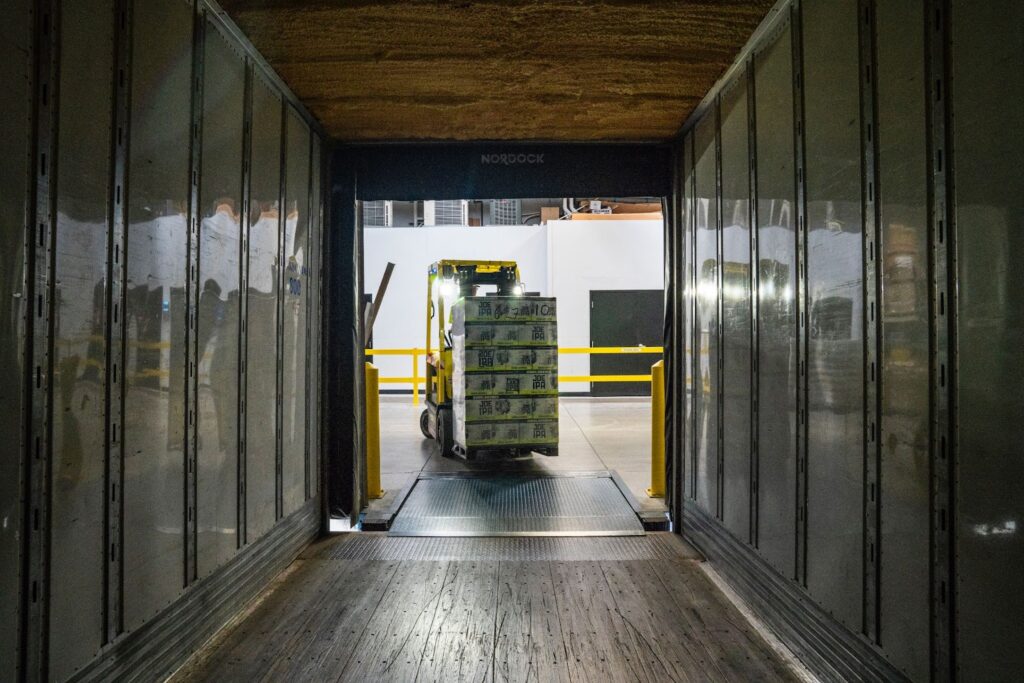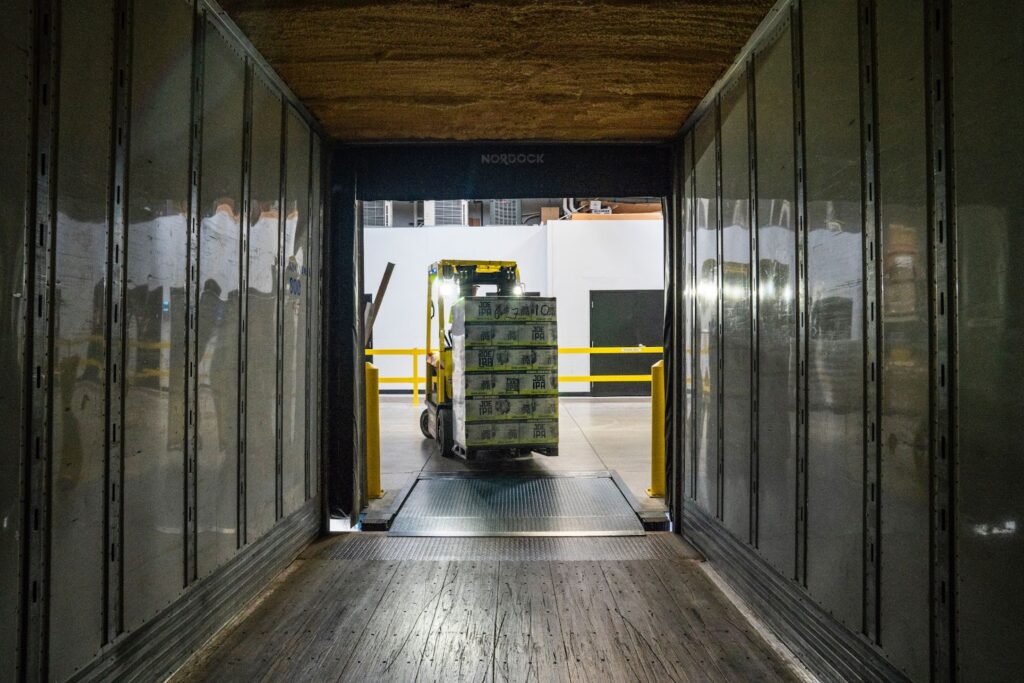Logistics, the unsung hero of business. It ensures products get from one point to the next with little to no issue – yet many businesses remain conflicted as to whether to outsource or keep logistics in-house. Let’s examine both options here.

Pros of Outsourcing Your Logistics
Expertise at Your Fingertips
By outsourcing your logistics, you are effectively hiring a team of specialists who know everything there is to know about logistics – giving you access to their extensive experience and knowledge for all things logistics-related. So that means that while they handle this part for you, you can focus on doing what comes naturally (which likely isn’t logistics!).
Cost-Effective
Outsourcing can often be more cost-efficient than maintaining in-house teams, eliminating management duties such as staff supervision or vehicle maintenance costs as well as overhead expenses that plague a traditional team structure. Outsourcing is like having your cake and eating it too without feeling guilty afterwards!
Legal Liability: Dodging the Trucking Accident Bullet
Another major advantage of outsourcing your logistics is dodging legal liability issues related to trucking accidents. Truck accidents are no fun at all – when outsourcing, the third-party logistics provider (with big trucks and larger insurance policies) takes on all the risk if an incident does happen (heaven forbid), meaning their phone will ring at 3am instead of yours when an incident does take place – outsourcing headaches is truly invaluable!
Saving Time and Making Your Investment Worthwhile
In business, time is money. Outsourcing logistics services can save you both. Instead of worrying over shipping schedules and customs forms or playing phone tag with transporters, your time could be better spent expanding your company – leave the logistics company to take care of distribution so you can pursue big dreams (and big bucks!).
Scalability of Outsourced Logistics
Outsourcing logistics offers many attractive advantages for business. As your business expands, so can its operations – without incurring additional infrastructure or personnel costs – making outsourced logistics an invaluable ally when expanding product lines or entering new markets. Your outsourced partner will always be with you every step of the way!
Cons of Outsourcing Your Logistics
Lack of Control
Outsourcing can give you access to an expert team, but it may mean relinquishing some control. Your logistics provider might do things differently than desired – be prepared for this reality when outsource.
Risk of Dependency
Over relying on third-party providers can put you at risk of dependency. If there are issues with them, your business could be severely impacted – it’s like rusting all your eggs in one basket with someone else!
Communication Hiccups
When outsourcing logistics, communication challenges may arise. Time zones, language barriers or simply having too many cooks in the kitchen may lead to miscommunication or delays – similar to playing an adult version of telephone games from childhood!
Loss of Customer Touchpoints
By outsourcing logistics, companies lose direct contact with their customers during the delivery phase – potentially diminishing their ability to manage and enhance customer experience. Outsourcing logistics is like sending off your child for their first sleepover – hoping the host knows exactly how to manage bedtime stories and nightlights without knowing for certain.
Potential Quality Issues
Nobody cares more deeply about your business than you. Outsourcing means entrusting its reputation to a third-party vendor whose performance doesn’t match up to your standards; should this occur, it could damage the brand image and lead to brand erosion. Think of outsourcing like giving someone else control of selecting an outfit for a big date – while it might work out fine, would you really risk it?
Outsourcing logistics can be transformative for some businesses, yet it comes with its own set of risks. Similar to making the decision between cooking at home or ordering takeout for dinner, both options have their own set of advantages and disadvantages, which should all be carefully considered when making this important business decision. So take time to research each option available to you before making your final choice and making the choice that’s best suited to you and your business.
